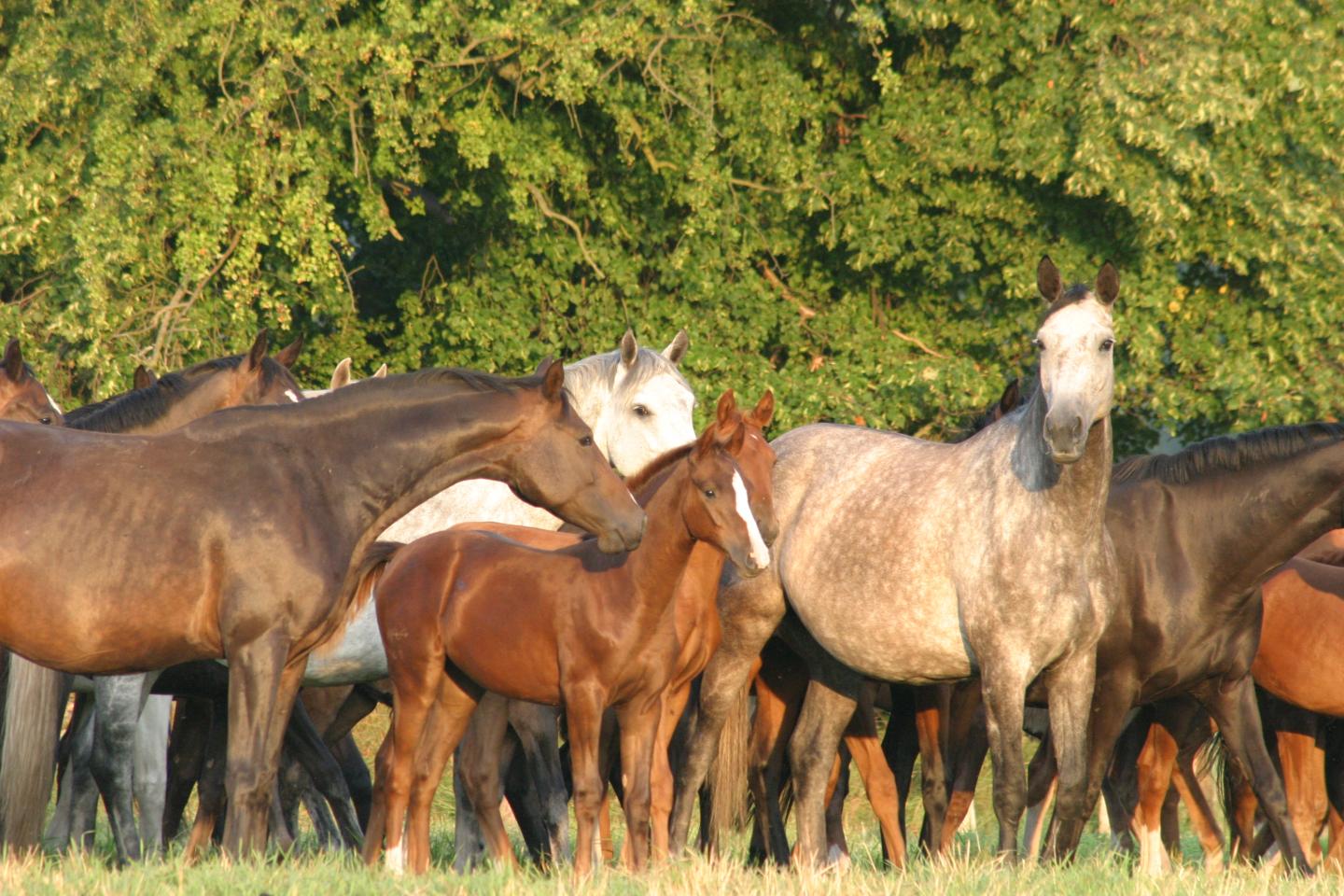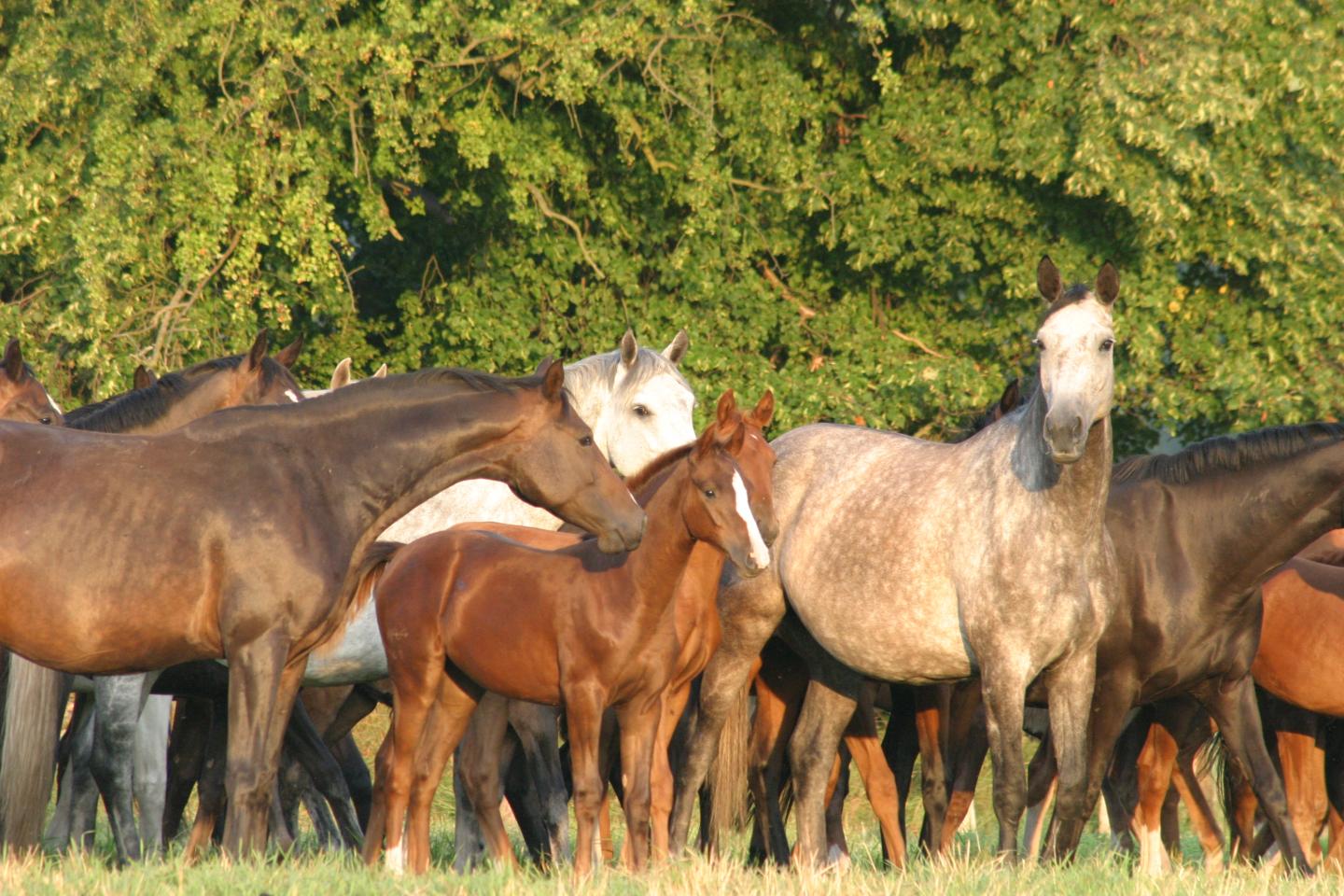
Credit: Juliane Kuhl/Vetmeduni Vienna
Seasonal and diurnal rhythms determine the life cycle of many animal species. In equids this is not only true for wild species such as the Przewalski but season-dependent metabolic changes also exist in domesticated horses. Horses can reduce their metabolic activity during the cold season and thus reduce heat loss. The effects of such seasonal changes on pregnancy and foetal development, however, have not been investigated so far. Researchers from Vetmeduni Vienna could now demonstrate that foals born in winter are smaller than herd mates born later in the year.
Reduced metabolism hits a critical foetal phase
The last weeks of pregnancy correspond to a time of rapid foetal growth. This phase is a key moment for development of the foal. „When a foal is born in winter, it is thus likely that the seasonal reduction in energy metabolism affects the foetus", explains principal investigator Christine Aurich.
To test their hypothesis, the scientists studied 27 broodmares and their foals at the Graf Lehndorff Institute, a joint research unit of Vetmeduni Vienna and the Brandenburg State Stud at Neustadt (Dosse), Germany. Mares and foals were allocated to three groups by the date of foaling. Foalings occurred between February and early March in Group 1, from early March until early April in Group 2 and from mid-April to May in Group 3. From all foals, weight and a variety of parameters to assess their size were determined repeatedly from birth to an age of 12 weeks. In addition, weight and size of the placenta were determined at foaling.
Clear seasonal effects on foal size – winter-born foals are smaller
„Among the foal groups we compared circumference of the thorax, height at withers, the distance from the fetlock to the carpal joint and to the elbow as well as length of the head from poll to nose. The size parameters clearly demonstrate that foals born in February were smaller than those born later in the year", explains first author Elisabeth Beythien. „The winter foals did not completely compensate their size deficit within the first 12 weeks of life. " No difference among foal groups existed for birth weight, although both weight and size of the placenta were smaller in winter-foaling mares than in mares foaling later in the year. „The smaller placenta indicates a reduced nutrient transfer to the foetus via the placenta, however, placental function appears to be sufficient also during winter. The placenta is thus not the only factor that determines foetal growth", suggests Elisabeth Beythien. Parity, i.e. the number of foals a mare has had, is known to affect foal size but in our study, the seasonal effects were also independent from parity".
Winter foals are rare in nature
In wild or feral horses, foals are rarely born in winter. Most mares show regular oestrous cycles only for a limited time period in spring and summer. With a pregnancy of 11 months, most foals are born at a time when temperature and nutrient supply would favour their survival in the wild. Modern breeding technologies, however, allow earlier foalings. The genetically fixed reproductive cycle of horse mares can be advanced by artificial light programmes, medical treatments but also just by optimizing housing and nutrition under stud farm conditions. In certain breeds this has strong oeconomic implications. „Although winter foals need at least 12 weeks to make up their size deficit, they can still be several months ahead of their later born conspecifics. This time window affects performance at competitions when all young horse born in the same year compete in the same class", explains study coordinator Christine Aurich.
Effects of differences in nutrition among horse groups in the study could be excluded. All mares were fed similarly throughout the study period „This confirms genetically based seasonal changes in maternal metabolism as a cause of foetal development and subsequent size of neonatal foals", concludes Elisabeth Beythien.
###
Service: The article "Effects of season on placental, foetal and neonatal development in horses" by Elisabeth Beythien, Christine Aurich, Manuela Wulf and Jörg Aurich was published in Theriogenology. http://www.sciencedirect.com/science/article/pii/S0093691X17301875?via%3Dihub
About the University of Veterinary Medicine, Vienna
The University of Veterinary Medicine, Vienna in Austria is one of the leading academic and research institutions in the field of Veterinary Sciences in Europe. About 1,300 employees and 2,300 students work on the campus in the north of Vienna which also houses five university clinics and various research sites. Outside of Vienna the university operates Teaching and Research Farms. http://www.vetmeduni.ac.at
Scientific Contact:
Christine Aurich
Insemination and Embryotransfer Platform
University of Veterinary Medicine Vienna (Vetmeduni Vienna)
T +43 1 25077-6400
[email protected]
and
Elisabeth Beythien
Graf Lehndorff-Institute for Equine Science
University of Veterinary Medicine Vienna (Vetmeduni Vienna)
[email protected]
Released by:
Georg Mair
Science Communication / Corporate Communications
University of Veterinary Medicine Vienna (Vetmeduni Vienna)
T +43 1 25077-1165
[email protected]
Media Contact
Christine Aurich
[email protected]
43-125-077-6400
http://www.vetmeduni.ac.at
Original Source
http://www.vetmeduni.ac.at/en/infoservice/presseinformation/press-releases-2017/seasonal-effects-winter-foals-are-smaller-than-foals-born-in-summer/





